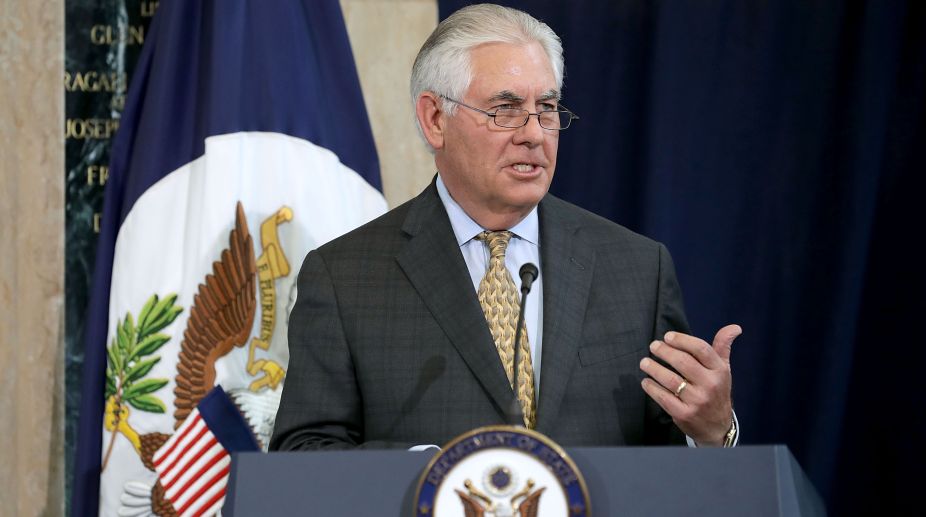Two Rohingyas detained in Tripura
During interrogation, the detainees revealed their Rohingya identity.

Rex Tillerson (Photo: AFP)
US Secretary of State Rex Tillerson visited Myanmar on Wednesday and called for an investigation into “credible reports of widespread atrocities” by the country’s security forces against Rohingya Muslims.
During a five-hour visit to Myanmar, Tillerson met the country’s de facto leader Aung San Suu Kyi and military commander Senior General Min Aung Hlaing, the New York Times reported.
Advertisement
He urged both to investigate and halt the violence that has driven more than 615,000 Rohingyas to flee to neighbouring Bangladesh since late August. Less than one-third of the 1.1 million Rohingyas who lived in Myanmar last year are thought to remain in the country.
Advertisement
Tillerson called the situation “horrific” and at a news conference said that there had been “crimes against humanity”. And while Tillerson said he advised against “broad-based economic sanctions” against Myanmar, he said targeted sanctions against individuals might be called for.
Members of the mostly stateless Muslim minority are still flooding into Bangladesh from Myanmar’s Rakhine state. They bring with them accounts of villages burned to the ground, women raped and children flung into fires. The accounts have been borne out by human rights investigators and, in the case of the villages, satellite evidence.
“The key test of any democracy is how it treats its most vulnerable and marginalised populations,” Tillerson said in Nay Pyi Taw.
“It is the responsibility of the government and the security forces to protect and respect the human rights of all persons within its borders and to hold accountable those who fail to do so.”
“The US would continue to support Myanmar’s transition to democracy,” he said, adding: “We want to see Myanmar succeed… I have a hard time seeing how (sanctions) helps resolve this crisis.”
Suu Kyi is accused of ignoring the plight of the Rohingyas and international pressure has been mounting for months on her to condemn the Army’s alleged brutality and what the UN described as “textbook example of ethnic cleansing”.
She earlier defended Myanmar’s security forces, saying that there should be an investigation into what caused the Rohingya crisis.
At the news conference on Wednesday, Suu Kyi defended her statements, saying “I don’t know why people say I’ve been silent” about the Rohingyas, and suggesting that perhaps what she has said was not “interesting enough” or “incendiary”.
Last month, Suu Kyi set up yet another commission dedicated to the Rohingya emergency. There are now at least five such panels and she presides over most of them.
Myanmar’s Minister for Social Welfare Win Myat Aye, who is involved in four of the government’s Rohingya commissions, said on Wednesday that he was wary of accusing the military of any atrocities.
On Tuesday, the Myanmar military released the results of a month-long internal investigation that cleared the Army of any abuses against Rohingya civilians. Instead, the armed forces blamed Rohingya “terrorists” for violence in Rakhine.
The latest military operation began after Rohingya insurgents attacked security outposts in Rakhine, killing Myanmar forces.
Advertisement